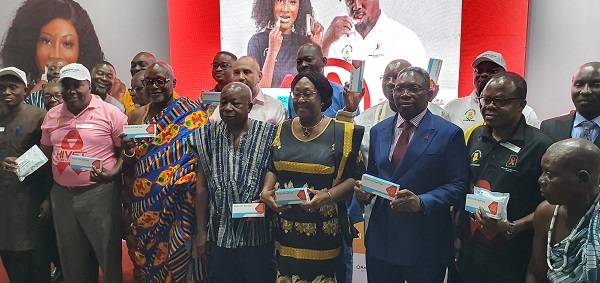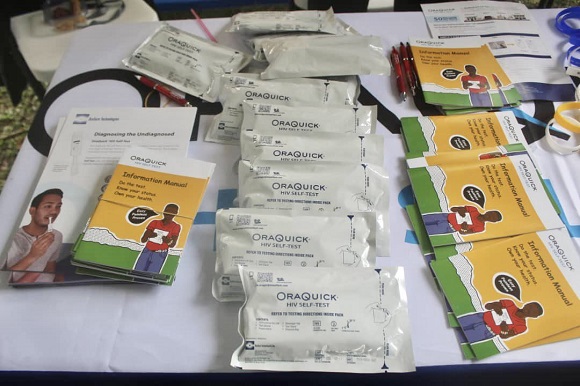A self-testing HIV kit to enable the public to check their status in the comfort of their homes, and wherever they find themselves was unveiled in Accra on Wednesday, July 19.
The device, supported by Global Fund to fight HIV, AIDS and Tuberculosis, would provide convenience, confidentiality, privacy and quick result.
Unveiling the kits, the Minister of Health (MoH), Mr Kwaku Agyeman-Manu, said the HIV self- testing kit was one of the newest innovations in the range of strategies aimed at encouraging persons to know their status.
Knowing your HIV status has now become private, simple and convenient. Test it yourself and get your results in less than 30mins.
This video shows how to use the test kit: pic.twitter.com/6h5Bg2DtcF— TheKwesiBimpe (@kwesi_bimpe) July 20, 2023
He said the availability of HIV testing kits would address the critical gap in healthcare system.
“Testing is the foundation to the entire response to HIV/AIDS, which is the gateway to prevention, treatment care and support services.
“When individuals know their status, they can make informed decisions about their health and make the necessary steps to protect themselves and their partners,” he said.

Mr Agyeman-Manu said increased testing would help effectively identify new infections to be tackled.
He said there was the need to ensure that everybody, regardless of their socioeconomic status, had access to accurate testing services.
This, he said would strengthen the collective efforts to curb the spread of HIV and reduce the stigma surrounding it.
Director-General of the Ghana AIDS Commission, Dr Kyereme Atuahene, said the ability to diagnose the HIV population in the country was the key determinant of success.
He said the HIV self-testing would empower individuals to discreetly and conveniently test themselves in the privacy of their homes or other preferred locations.
Dr Atuahene added that the kit would also provide an opportunity to reach key populations who might face unique challenges in accessing health care.
“By expanding access to sub testing, we can overcome barriers related to stigma and concerns about privacy and confidentiality that often deter individuals from seeking traditional testing test services,” he added.
He said Ghana was expected to achieve the ‘95-95-95’ targets by the end of 2025.
Programme Manager, National AIDS/STI Control Programme, Dr Stephen Ayisi Addo, said about 70,000 kits had been distributed across the regions targeting the youth.
“Currently we have in stock over 165,000 kits ready for distribution and we have also budgeted for more kits under the next Global Fund grant to complement the private sector,” he said.
The UNAIDS Country Director, Mr Hector Sucilla, said UNAIDS and United Nations team on AIDS, ratify the support to this initiative, “Working hand by hand, we can achieve our target of ending AIDS by 2030.”
He encouraged stakeholders in the health sector to implement the necessary actions to ensure continuity of differentiated HIV testing studies, testing technologies and commodities were available and accessible for all.
Source: Ghanaiantimes





